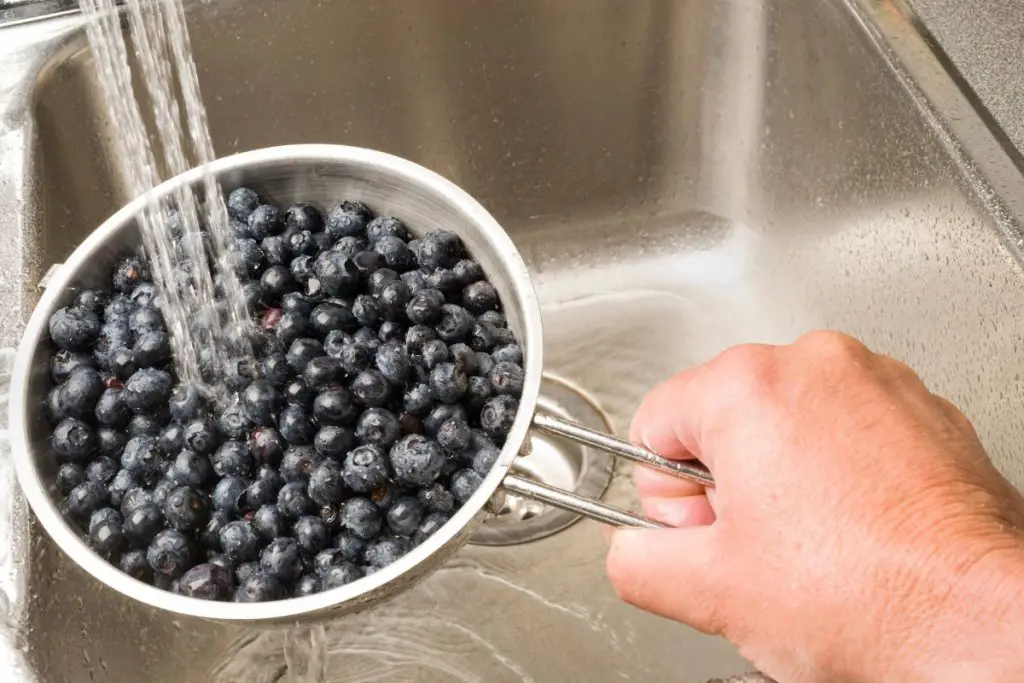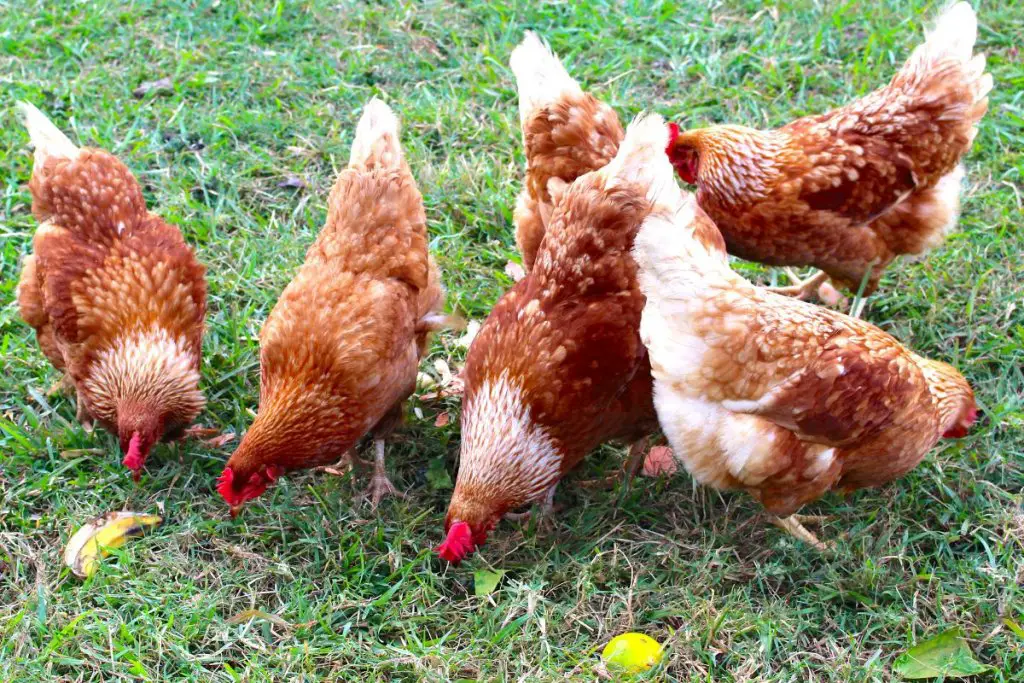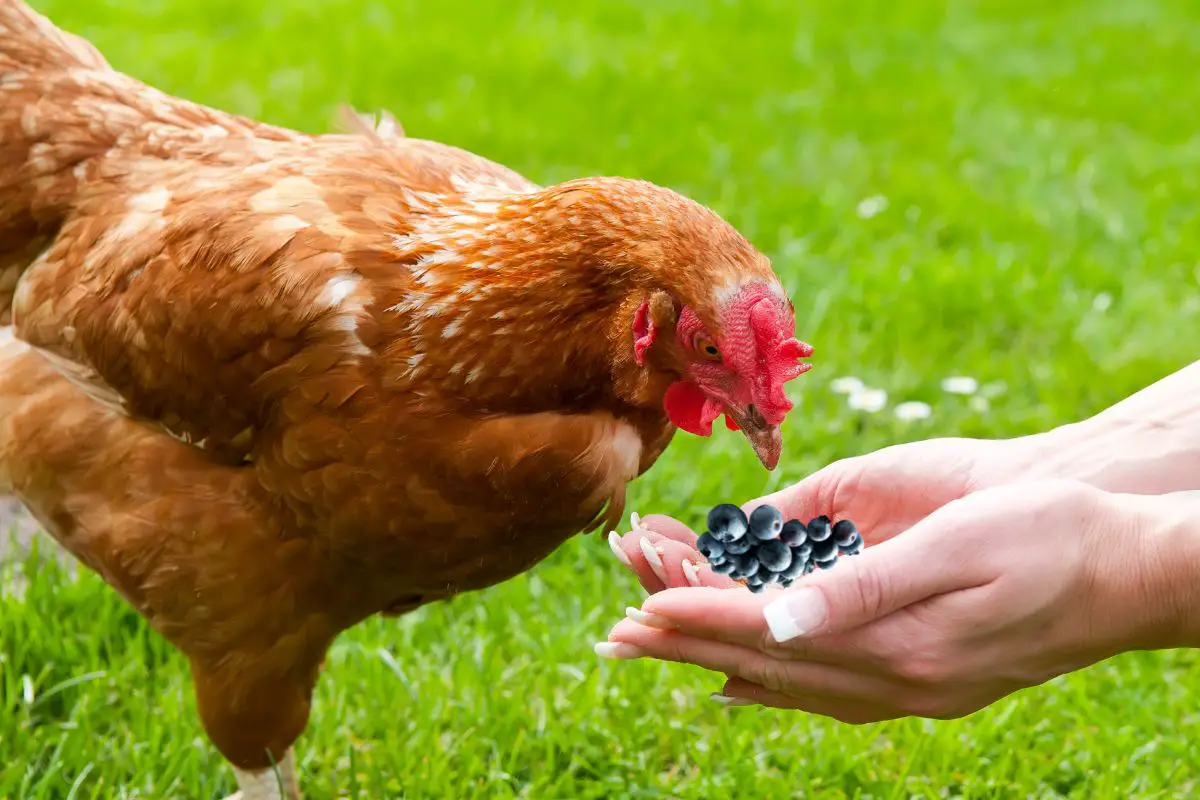Chickens can eat blueberries and not only do they enjoy these treats, but they provide many health benefits. However, they are best served in moderation due to their sugar content.
If you care about your chicken’s health, you should be feeding them blueberries. Not only are blueberries a great treat, but they also offer incredible nutritional value and can be homegrown easily in your backyard garden.
Chickens that are allowed free range enjoy a variety of natural foods including nuts, seeds, and mealworms along with their commercial feed – and if you have blueberries in your garden, they will surely help themselves!
Why Should You Feed Blueberries to Your Chickens?
Blueberries offer many important health benefits to your backyard chickens including:
- Antioxidant Power – Blueberries contain antioxidants such as anthocyanins that help destroy free radicals in your chicken’s cells, and help reduce illness and disease.
- Blood Sugar Regulation – Blueberries can help control blood sugar levels and keep them stable. They are a good choice to feed to overweight birds (in moderation).
- Dietary Fiber – The soluble fiber in blueberries will allow your chickens to have regular bowel movements and can act as a digestive aid.
- Nutrient-Dense Superfood – These berries have so many vital nutrients that they help strengthen your chicken’s immune system!
- Inflammation Negation – Blueberries contain anti-inflammatory properties and may help chickens who have pain due to injury or old age.
- Lower Overall Cholesterol – Blueberries are known to lower cholesterol as a heart-healthy food.
- Heart-Healthy Treat – These berries are chock-full of nutrition and are a healthy treat that can help prevent arteries from blockages and heart disease
Blueberries also contain a ton of essential nutrients that chickens need including:
- Vitamin C
- Vitamin K
- Calcium
- Potassium
- Folate
- Magnesium
- Manganese
- Vitamin B
- Vitamin A
How Should You Feed Blueberries to Chickens?
As chickens love blueberries and prefer them to most other foods, it’s important to give them a mixture that contains other types of healthy foods to encourage variety and a balanced diet.

Blueberries and other fresh produce must always be thoroughly washed to remove pesticides prior to giving it to your flock. It is advisable to cut blueberries in half as chickens will swallow them whole and you will want to reduce the potential choking hazard.
Blueberries can be fed with a mix of other fruits and seeds such as rhubarb, diced plums and apricots, raspberries, sunflower seeds, cucumbers, strawberries, and leafy greens.
You can add this mixture to their feeders or scatter it in their feeding area. Never provide more than what your chickens can eat in a single day, and clean up any uneaten amounts to keep the chicken coop clean.

You should remember that you should never provide moldy blueberries or other produce that has gone bad to your chickens because mold is toxic to chickens.
What are Signs Chickens Ate Too Many Blueberries?
Blueberries are a good treat but if fed in excess (more than three whole berries per chicken), they can lead to obesity. While blueberries are healthy, they are also a carbohydrate because of their natural sugar.
Chickens that aren’t eating their normal feed after having been offered blueberries have probably been fed too many blueberries.
Additionally, too many blueberries can affect a chicken’s poop – they may have diarrhea and the color of their poop may change to a blue color! Too many blueberries can also cause issues with egg production – so it is advisable to only feed blueberries in moderation, a few times per week.
Chickens love blueberries and may find it hard to control themselves. If you do allow them to freely forage in your blueberry bushes, you will want to limit the amount of time they can spend there, lest they fill up on this treat and ignore their regular chicken feed.

